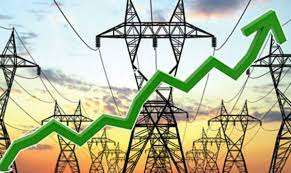The new electricity tariff! What are the implications for consumers? As the regime takes effect from April 1, Akinola AJIBADE examines its implications for consumers.
In April 1, the new electricity tariff regime would take off. Under it, consumers, including individuals and corporate organizations, would pay more for energy.
The Nigerian Electricity Regulatory Commission (NERC) in January announced the new tariff regime amid anxieties and huge expectations from Nigerians.
Notable is the effectiveness of the tariffs. Many consumers do not pay cost-effective tariffs; a reason the government introduced the new regime.
Earlier, NERC said it would implement the tariffs in phases, to ensure the payment is flexible.
Stakeholders have expressed mixed feelings on the issue. While some believe that the cost of accessing electricity is high and that the Federal Government’s decision to continue to subsidize the cost of electricity till 2021, cannot lessen the pains of average users of energy until supply is stable, others do not.
They backed the government’s decision to increase the tariffs. To them, the government is on the path of rejiging the sector by returning it to optimal productivity.
One of the three key stakeholders in the energy value chain is the 11 power distribution companies (DisCos), which issue electricity bills and in return collect money from customers. Painfully, the money is not paid promptly due to irregular supply of power.
The Director, Research and Advocacy, Association of Nigerian Electricity Distributors (ANED), Mr. Sunday Oduntan, said the supply of electricity would improve as soon as there is increased revenue from the tariffs.
He said: “While I understand the frustrations of Nigerians that they are not getting enough supply of electricity, it is pertinent to say that the poor funding of the sector, in recent times, caused the problem. For the sector to be efficiently run, the price of electricity must increase.
That is what the government has done by trying to implement new electricity tariffs on April 1, this year. Nigeria cannot have electricity if those in government refuse to sit down, examine issues affecting the sector, and proffering solution. We must realize that the cost of production of electricity determines its price.”
He said the only way the country could mitigate the rising cost of electricity is to make money available to the operators and that is what the government has done by putting in place cost-effective tariffs.The Chief Executive officer, Meter Electricity Manufacturers Company Nigeria Limited (MEMCOL), Mr. Kola Balogun, said liquidity is the bane of the sector, adding that consumers lacked the cash to pay for the rising cost of electricity.
He said the government is subsidizing the sector by providing intervention funds to the operators, adding that it cannot continue to fund the sector when it has other responsibilities unattended to. The sector, he said, would have enough money for operation if the tariffs are well implemented. Learn more about Power supply to drop again, TCN alerts Nigerians
Feel free to contact us or Check out the resources listed below and Get Quotes or join the conversation using the hashtag #Solarpanel,#solarlight, #inverter, #Solarfan, #Solarwaterpump.

